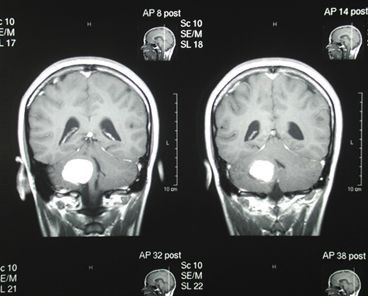Brain development goes off track as vulnerable individuals develop schizophrenia

Two new research studies published in Biological Psychiatry point to progressive abnormalities in brain development that emerge as vulnerable individuals develop schizophrenia.
The first of these papers studied individuals with a deletion of a small section of chromosome 22. This genetic deletion often results in the development of abnormalities in the structure of the heart and of the face, a condition called velocardiofacial syndrome (VCFS; also known as 22q11.2 deletion syndrome). Up to 32% of people with VCFS develop psychotic disorders including schizophrenia, which occurs in 1% of the general population.
Using magnetic resonance imaging (MRI), Dr. Wendy Kates and her colleagues showed that during adolescence, progressive deficits in the volume of the temporal cortex gray matter were predictive of developing psychosis.
"Our findings suggest that in VCFS, brain changes during mid-adolescence, particularly in the temporal lobe, predict early signs of psychosis," said Dr. Kates. "This suggests that it may be possible, eventually, to develop a screening tool that would identify those VCFS-affected youth who are at the highest risk for schizophrenia."
In another paper, Dr. Andrew McIntosh and colleagues report a similar pattern among adolescents and young adults who were followed over a 10 year period. All of the young people were well at the beginning of the study, but some were at high genetic risk of developing schizophrenia due to having family members with schizophrenia.
"The participants were examined repeatedly by a psychiatrist and with structural brain scans to see if there were changes in brain structure in people who later became unwell," explained Dr. McIntosh. "At the end of the study, we found that there were accelerated reductions in the volume of particular brain structures in the people at high risk, and additional reductions in the volume of the frontal lobes in those people who later developed schizophrenia."
These two studies highlight the existence of progressive changes in brain structure related to the emergence of symptoms among individuals at risk for developing schizophrenia.
"These studies cannot define the specific changes at the cellular level and thus, we are limited in our capacity to make precise predictions based on these MRI data," commented Dr. John Krystal, Editor of Biological Psychiatry. "However, the findings suggest that schizophrenia is not simply a 'scar' but rather an ongoing brain process that might need to reach an as yet unclear stage where symptoms emerge. That being the case, there is hope that someday one might develop treatments that block this 'disease process' as we have been able to do for some other heritable brain diseases."



























